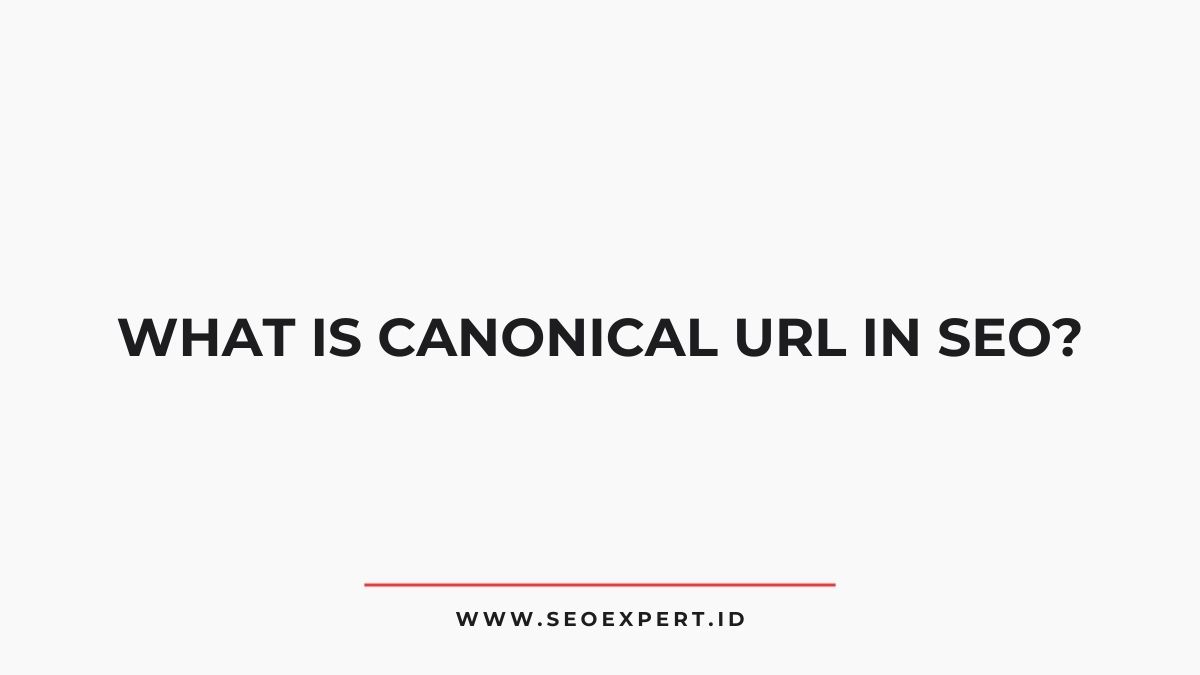A canonical URL serves as the authoritative version of a webpage in SEO, mitigating duplicate content risks.
Screpy
Utilize an AI-driven SEO analysis tool to evaluate your website and monitor your keywords all in a single intuitive dashboard.
It consolidates link equity, enhancing a site’s visibility and overall authority.
By pointing search engines to the preferred URL, it streamlines crawling and indexing processes, ultimately improving site performance.
Proper implementation of canonical tags is critical for maintaining SEO integrity.
Understanding various strategies and common issues related to canonical URLs can further optimize online presence and effectiveness.
TL;DR
Hide- A canonical URL is the preferred version of a web page, helping to prevent duplicate content issues in SEO.
- It consolidates link equity, enhancing search visibility and authority of the designated page.
- Canonical tags guide search engines to the correct page, improving crawl efficiency and reducing indexing errors.
- They are vital for managing multiple URLs with the same content or different parameters.
- Proper implementation and regular verification of canonical URLs are crucial for maintaining effective SEO performance.
Understanding Canonical URLs
Although web pages may contain similar or duplicate content, understanding canonical URLs is crucial for effective search engine optimization (SEO).
Canonical URLs serve as the definitive version of a web page, guiding search engines to recognize the preferred content. This mechanism is essential in preventing potential penalties associated with duplicate content, which can dilute a site’s authority and negatively impact rankings.
By specifying a canonical URL, webmasters guarantee that search engines index the correct version, consolidating link equity and enhancing visibility.
Implementing canonical URLs strategically mitigates the risk of content fragmentation, thereby safeguarding the site’s integrity within search engine results.
For those prioritizing a robust SEO strategy, a thorough grasp of canonical URLs is imperative for maintaining peak online presence and performance.
The Importance of Canonical Tags
Canonical tags serve a critical role in mitigating issues related to duplicate content, which can dilute a website’s authority and confuse search engine algorithms.
By specifying a preferred version of a webpage, these tags enhance crawl efficiency, allowing search engines to focus on the most relevant content.
Ultimately, implementing canonical tags can lead to improved search rankings, reinforcing the importance of strategic SEO practices.
Duplicate Content Prevention
When multiple pages on a website contain similar or identical content, search engines may struggle to determine which version to index or rank, leading to diluted visibility.
This scenario can negatively impact a website’s search engine optimization (SEO) efforts. Canonical tags serve as a strategic tool for preventing duplicate content issues by explicitly indicating the preferred version of a page.
By implementing canonical tags, webmasters can consolidate link equity and guarantee that search engines prioritize the correct URL. This not only enhances the site’s authority but also reduces the risk of penalties associated with duplicate content.
In a landscape where online safety and credibility are paramount, utilizing canonical tags becomes an essential practice for maintaining ideal SEO performance.
Enhanced Crawl Efficiency
The presence of duplicate content can greatly hinder search engine crawling efficiency, as search engines must allocate their resources to navigate multiple similar pages.
Canonical tags serve as a strategic solution, guiding search engines to the preferred version of a webpage. By explicitly indicating which URL should be prioritized, canonical tags streamline the crawling process, allowing search engines to focus on quality content rather than redundant variations.
This enhanced crawl efficiency not only conserves valuable resources but also minimizes the risk of indexing errors. Consequently, websites employing canonical tags can maintain a structured and organized site architecture, fostering improved user experience.
Therefore, implementing canonical tags is a prudent measure for ensuring that search engines efficiently access and interpret a website’s content.
Improved Search Ranking
Effective search ranking is essential for online visibility, and the strategic use of canonical tags plays an important role in this process. By employing canonical tags, website owners can mitigate issues related to content duplication, which can adversely affect search rankings.
The benefits of utilizing canonical tags include:
- Consolidation of Link Equity: Canonical tags direct link signals to a single URL, enhancing its authority.
- Reduction of Duplicate Content: By indicating the preferred version of content, canonical tags help search engines avoid penalizing sites for duplicate entries.
- Improved Indexing Efficiency: Search engines can focus their crawling efforts on the canonical version, improving overall site performance in SERPs.
Incorporating these strategies fosters a safer and more effective online presence, ultimately leading to improved search rankings.
How to Implement Canonical URLs
Implementing canonical URLs requires a strategic approach to guarantee that search engines correctly understand the preferred version of web pages with duplicate or similar content.
To effectively implement canonical URLs, webmasters should first identify duplicate pages within their site. Once identified, the canonical link element, ”, must be placed in the head section of the HTML of each duplicate page, pointing to the preferred URL.
This process not only consolidates ranking signals but also aids in preserving the site’s authority. It is essential to ensure that the canonical URL is fully functional and accessible.
Regular audits should be conducted to verify that canonical tags are correctly implemented and maintained, minimizing the risk of indexing issues and enhancing overall SEO safety.
Common Scenarios for Using Canonical URLs
While various scenarios may arise in website management, understanding when to use canonical URLs is essential for maintaining SEO integrity.
Canonical URLs serve as a strategic tool to mitigate duplicate content issues, ensuring that search engines recognize the preferred version of a page.
Common scenarios for employing canonical URLs include:
- Duplicate Content: When multiple URLs lead to the same content, canonical tags direct search engines to the primary source.
- URL Variations: For pages that can be accessed through different parameters, such as tracking codes, canonical URLs consolidate link equity to a single version.
- Content Syndication: When content is published on external sites, canonical tags help attribute authority back to the original source, preserving its ranking potential.
Utilizing canonical URLs effectively safeguards SEO efforts and enhances search visibility.
Best Practices for Canonical Tag Implementation
Properly implementing canonical tags is vital for maximizing their effectiveness in SEO strategies. To guarantee ideal use, webmasters should place the canonical tag within thesection of the HTML document, explicitly pointing to the preferred version of a URL.
Consistency is essential; all duplicate pages must reference the same canonical URL to prevent confusion for search engines. Additionally, using absolute URLs is advisable to eliminate ambiguity.
It is important to monitor the canonical settings regularly, as changes in site architecture can necessitate updates. Moreover, avoid self-referencing unless necessary, as this can dilute the efficacy of the tag.
Troubleshooting Canonical URL Issues
Troubleshooting canonical URL issues requires a systematic approach to identify common mistakes that can hinder SEO performance.
By verifying the implementation of canonical tags, professionals can guarantee that search engines accurately interpret the preferred content source.
Addressing these factors is essential for maintaining ideal indexing and ranking outcomes.
Common Canonical Mistakes
When websites fail to implement canonical URLs correctly, they can encounter significant issues that undermine their SEO efforts.
Common canonical mistakes often lead to confusion for search engines and dilute page authority. Addressing these errors is vital for maintaining a robust SEO strategy.
- Incorrect URL Declaration: Using the wrong canonical URL can misguide search engines, leading them to index the wrong page.
- Multiple Canonical Tags: Implementing more than one canonical tag on a single page can create ambiguity, confusing search engines.
- Non-Relative URLs: Utilizing absolute URLs instead of relative URLs can result in inconsistencies, especially when sites undergo changes in their domain or structure.
Identifying and rectifying these missteps is essential for optimizing search visibility and ensuring a secure online presence.
Verifying Canonical Implementation
Verifying canonical implementation is critical for guaranteeing that search engines accurately interpret a website’s preferred content.
This process involves several strategic steps, including utilizing tools such as Google Search Console to identify potential discrepancies in canonical tags.
Webmasters should inspect the source code of their web pages to guarantee that the canonical link element is correctly implemented.
Additionally, testing the canonical URLs with various SEO audit tools can reveal issues such as multiple tags or incorrect targeting.
Continuous monitoring is essential; changes in site structure or content can affect canonicalization.
By adopting a systematic approach to verification, website owners can safeguard their SEO efforts, guaranteeing that their preferred URLs are prioritized by search engines, thereby improving visibility and user experience.
Wrapping Up
To sum up, canonical URLs serve as a critical tool in SEO strategy, ensuring that search engines recognize the preferred version of web content amidst potential duplicates.
By implementing canonical tags effectively, website owners can enhance their site’s authority and improve search ranking outcomes.
Just as a compass guided ancient mariners through uncharted waters, canonical URLs navigate the complexities of online visibility, allowing for streamlined indexing and a robust user experience in the digital age.








